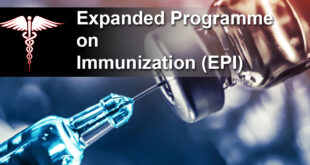- The energy storage based on lithium-ion batteries will help India to achieve its greenhouse mitigation targets since the basic raw material for production of electric vehicles is lithium and other critical materials.
- At present, investments in manufacturing and overall value addition for Advanced Chemistry Cells (ACCs) are negligible in India and almost entire domestic demand of ACCs is still being met through imports.
- In order to reduce dependency of imported ACC battery for electric vehicles, the Government on 12thMay, 2021 approved a Production Linked Incentive (PLI) Scheme for manufacturing of Advance Chemistry Cell (ACC) in the country.
- The total outlay of the scheme is Rs. 18,100 Crore for a period of 5 years. The scheme envisages to establish a competitive ACC battery manufacturing set up in the country (50 GWh). Additionally, 5GWh of niche ACC technologies is also covered under the Scheme.
- The scheme proposes a production linked subsidy based on applicable subsidy per KWh and percentage of value addition achieved on actual sales made by the manufacturers who set up production units.
- Further, the Ministry of Heavy Industries has taken following steps to boost the production of e-vehicle in the country including public transport buses
- Faster Adoption and Manufacturing of Hybrid and Electric Vehicles in India (FAME India):
- The Government notified Phase-II of FAME India Scheme initially for a period of three years commencing from 1stApril, 2019 with a total budgetary support of Rs. 10,000 crore.
- The Scheme was extended for a further period of 2 years up to 31st March, 2024. Under FAME-India Scheme phase-II, incentives are provided to buyers of electric vehicles in the form of an upfront reduction in the purchase price of electric vehicles.
Production Linked Incentive (PLI) Scheme for Automotive Sector:
The Government on 15th September, 2021 approved the PLI Scheme for Automotive Sector with a budgetary outlay of Rs. 25,938 crores. Electric vehicles are covered under this PLI scheme.
As per the information received from Ministry of Environment, Forest and Climate Change, Government of India published the Battery Waste Management Rules, 2022 on 24thAugust, 2022 for environmentally sound management of waste batteries, including EV batteries.
The rules provide Extended Producer Responsibility framework for producers of batteries to recycle/ refurbish the waste batteries as per the prescribed timelines.
 Chinmaya IAS Academy – Current Affairs Chinmaya IAS Academy – Current Affairs
Chinmaya IAS Academy – Current Affairs Chinmaya IAS Academy – Current Affairs



